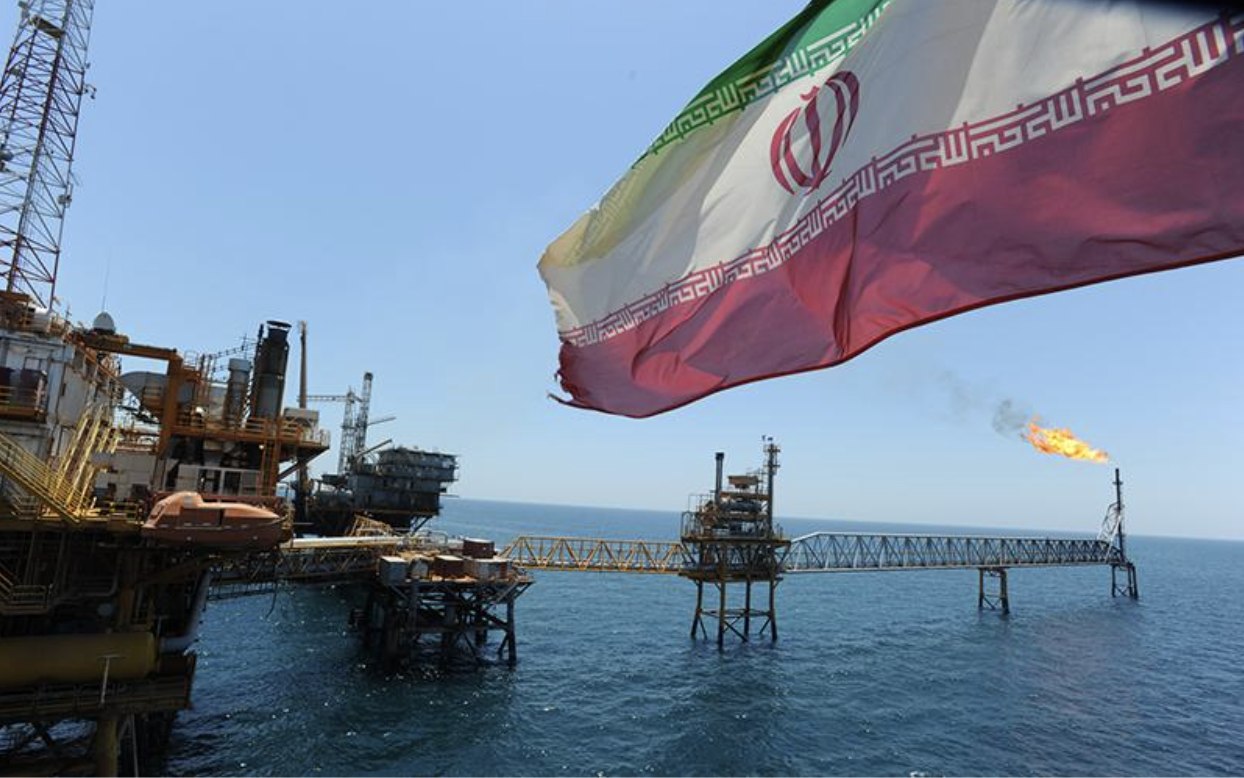Photo via Forbes
***
On October 9, 2025, the United States Treasury Department instituted sanctions on fifty organizations associated with the export of Iranian oil. Some of the bodies that were sanctioned included vessels flying non-Iranian flags, United Arab Emirates-based trade organizations, and shell companies operating out of Hong Kong. These sanctions come after the reimposition of Snapback sanctions related to the 2015 Joint Comprehensive Plan of Action (JCPoA) on September 27. The JCPoA is a plan detailing Iran’s denuclearization in exchange for sanctions relief from the signatory organizations, including the European Union (EU), China, Russia, and, formerly, the United States.
Despite experts predicting a decline in Iranian oil productivity, exports reached a 7-year high this September, shipping more than 1.9 million barrels per day (bpd). This multifaceted system of shell organizations and unidentified tankers, known as the “shadow fleet,” obfuscates international regulatory bodies. The Islamic Revolutionary Guard Corps (IRGC), a US-designated terrorist organization, holds a significant stake in shadow fleet revenue. The IRGC is the only designated terrorist organization in the United States that is a part of a state’s military. The organization serves to secure the ideological principles of the Islamic Republic and supports proxy organizations such as Hezbollah and Hamas. In 2020, the first Trump Administration notably carried out an airstrike, assassinating IRGC leader Qasem Soleimani. Despite Western efforts to neutralize the Iranian oil sector, the state maintains strong exports to Chinese, South American, and Southeast Asian actors.
More Sanctions, More Exports
Treasury Secretary Scott Bessent outlined a policy of “maximum pressure” on the Iranian Regime in order to reduce oil exports to zero. However, recent actions have led Tehran to enhance the efficiency of its export system rather than reduce operations. America’s international economic authority is wavering as a result of actions taken by the current administration such as tariffs and other confrontational policies. During Trump’s first administration, Iranian oil output faced steep drops, but today the United States lacks the international cachet to enact similar policies as in the past. Iran, alongside several other emerging economies, has partnered with BRICS — an organization originally encompassing Brazil, Russia, India, China, and South Africa, but now including many more states — which was formed in opposition to G7 economic hegemony. BRICS seeks to challenge the financial power of organizations such as the International Monetary Fund (IMF), of which it has been critical.
A Band-Aid Fix
The previous American policy of economic strongmanning will not instigate change with the same efficacy as it did nearly a decade ago. Continuing to sanction individual organizations, vessels, and companies will not sting the same as it once did. The shadow fleet has expanded operations far beyond previous capacities, to the degree that more actors will appear faster than they can be neutralized. Sanctioning policy will not solve the long-term goal of weakening the regime. Isolating Iran will only serve to further concentrate power within state actors instead of encouraging economic liberalization that weakens state control over industry. The creation of this second market for discounted Iranian oil does nothing to reduce the power of the Iranian state internally. Instead, Iranian relations with non-Western states are strengthened as they continue to take advantage of low prices.
The United States is rapidly losing its economic influence around the world. Consequently, economic power-broking is not working for the state like it used to. Diplomacy– insofar as the interests of the Islamic Republic are recognized, such that fair negotiation may take place– is the only means through which meaningful change can be enacted in the Islamic Republic.
***
This article was edited by Madison Boyd and Thomas McCarthy.
